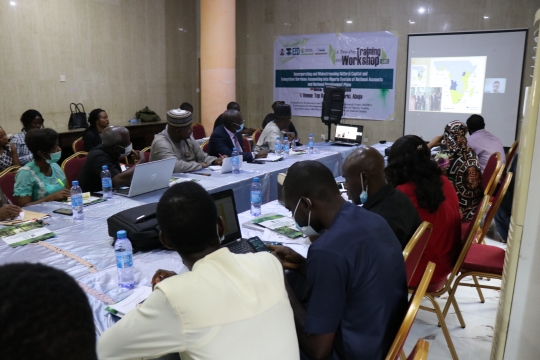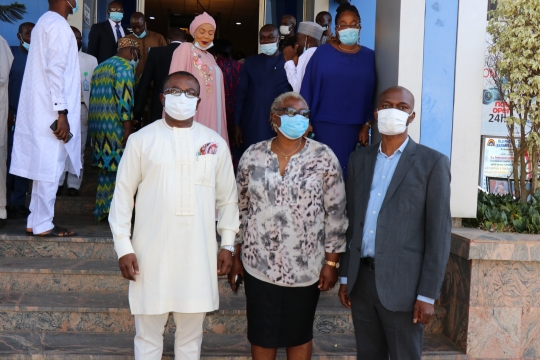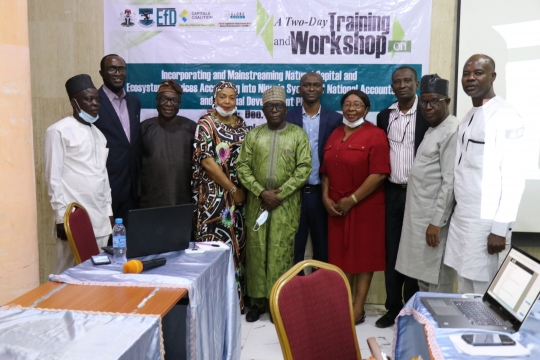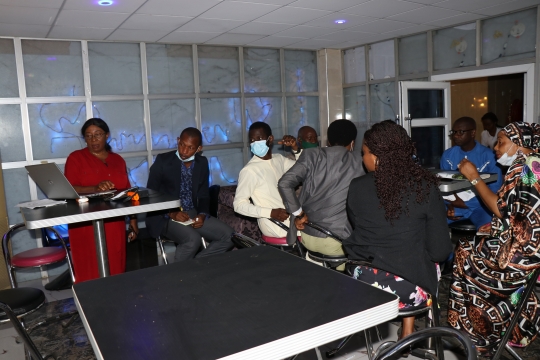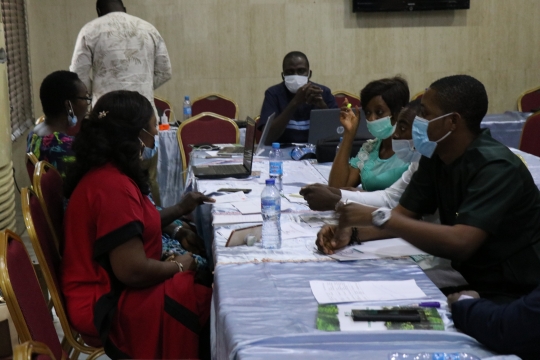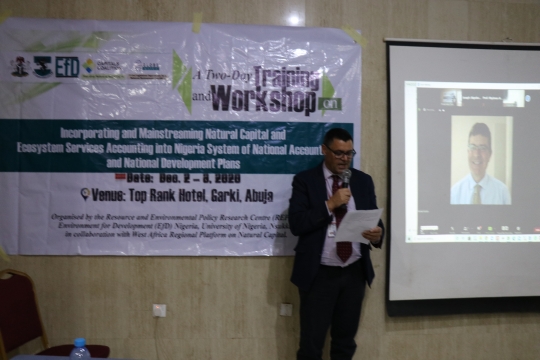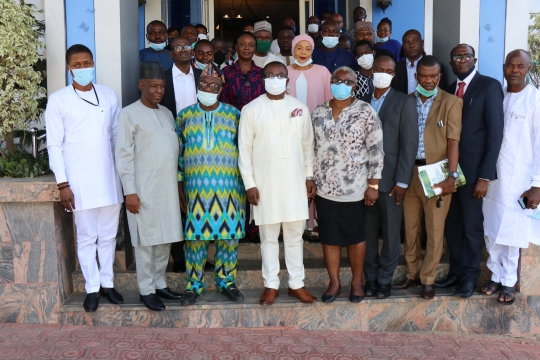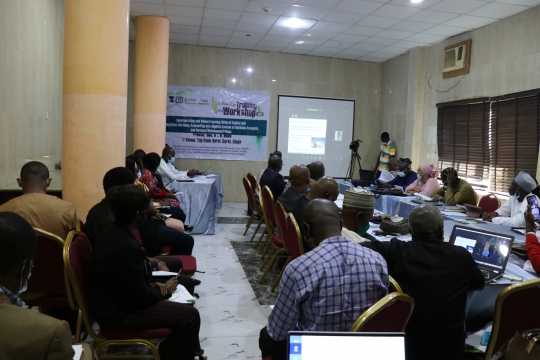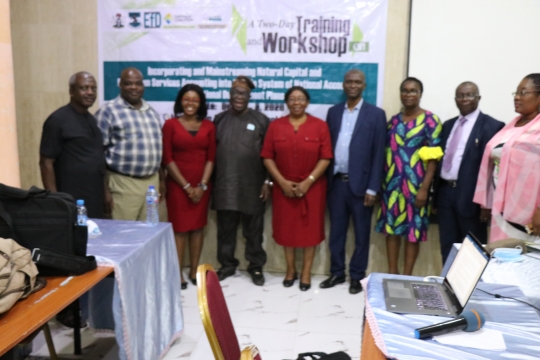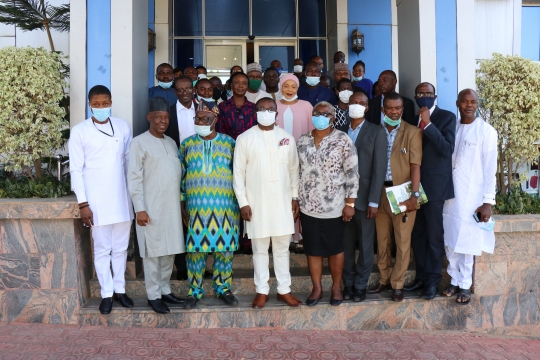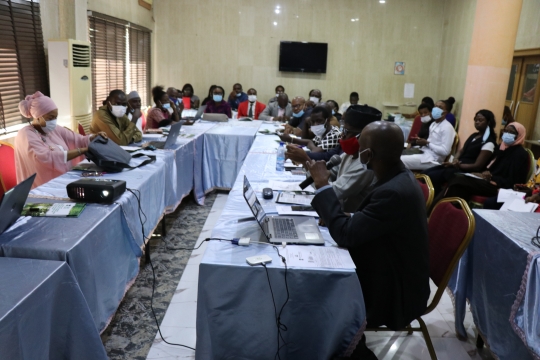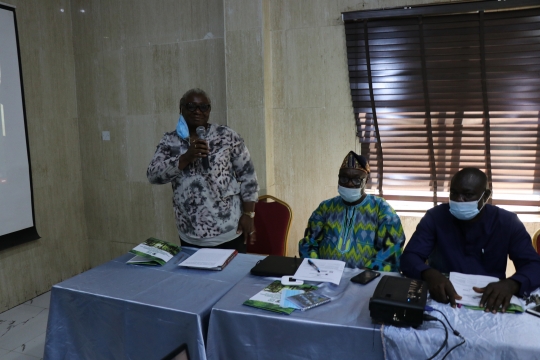Despite Nigeria’s enormous natural resources, the country is yet to incorporate and mainstream natural capital and ecosystem services in its system of national accounting, fortunately, the Resource and Environmental Policy Research Centre (REPRC), Environment for Development (EfD) Nigeria is standing in the gap and has mobilized stakeholders to develop a roadmap for policymakers.
The Centre collaborated with the African Regional Platform on Natural Capital in organizing a capacity-building workshop/training on natural capital accounting. Participants were government staff from Nigeria’s ministries of environment, finance, budget and planning, statistics, and academia.
Some Participants at the Training
The country’s Minister of State for Environment, Sharon Ikeazor in her address at the event said that the continued exclusion of natural capital in the country’s system of national accounting would hamper Nigeria’s achievement of sustainable development goals.
Cross Section of participants at the training
The Minister, who spoke through her Special Adviser Dr. Pricilla Achakpa, said that although the Federal Ministry of Environment had made some efforts in providing some data required for natural capital accounting through the implementation of some aspects of the National Biodiversity Strategy and Action Plan, a lot remained to be done.
“My Ministry will be happy to support the implementation of a roadmap for advancing natural capital and ecosystem services accounting in Nigeria and its mainstreaming into national policy and plans”, Ikeazor said while commending EfD Nigeria for taking the initiative.
The Vice-Chancellor of the University of Nigeria, Professor Charles Igwe, also commended the Resource and Environmental Policy Research Centre and its partners for promoting the need for a government policy that would evaluate the impact of economic development on natural resources and environmental sustainability.
Igwe said that it was regrettable that Nigeria, being the largest economy in Africa, was yet to know the true value of its natural capital.
“They need to adopt a governance approach that accounts for the impact of economic development on natural resources and environmental sustainability, and integration of such knowledge into policies and decision making in Nigeria can, therefore, not be over-emphasized” Igwe, who spoke through Dr. Nnaemeka Chukwuone said.
Sofia Elizbeth from the World Bank, who spoke through Zoom, expressed the support of the World Bank in the effort to provide direction for Nigeria’s natural capital accounting. She said that some African countries had already adopted the accounting system and that she was looking forward to receiving Nigeria into the league.
The Head, that Climate Change & Energy, West Africa, British High Commission, Abuja. Sean Melbourne said that the current value of Nigeria’s natural resources was still hidden and could only be known through natural capital accounting.
“The hidden benefits are vital to our current well-being, as well as to our current economic performance, and the wellbeing of future generations. The natural capital approach is one way of ensuring these hidden benefits are taken into account in our decisions – in your decisions” he said.
Melbourne urged Nigeria to join other African countries like South Africa, Botswana, Uganda and who had incorporated natural capitals into their accounting systems, stating that “the United Kingdom would be pleased to share its experience of natural capital accounts, and help develop innovative approaches and consistent data methodologies with Nigeria”.
Representative of the Minister of State for Environment, Dr. Pricilla Achakpa delivering the Minister's address
Professor Emmanuel Oladipo, the Chairman, REPRC-EfD Nigeria Policy Advisory Panel, said that the mismanagement of natural resources was the reason humans were exposed to contacts with diseases-caring animals which had caused many disease outbreaks including Ebola and Lassa fever.
He said that it was high time the government should take the issue of natural capital accounting very seriously as that was the bedrock of sustainable development in the country.
The Director of REPRC-EfD Nigeria, Dr. Nnaemeka Chukwuone, said that Nigeria could not afford to keep ignoring the inclusion of natural capital in its system of national accounting because of its benefits of keeping the environment safe and a source of revenue to the government.
Chuukwuone said that the objective of the training was to build the capacity of staff from relevant sectors in natural accounting and also develop a roadmap to facilitate government policy that would ensure the incorporation and mainstreaming of natural capital and ecosystem services accounting into Nigeria’s system of national accounts and national planning.
He said that EfD Nigeria would continue to use its researches to push for policy options that would help protect Nigeria’s environment.
The Chairman of GLOBE Nigeria, Hon Sam Onuigbo said that the incorporation of natural capital in national accounting would be one of the major ways of diversifying Nigeria’s economy and making it less dependent on oil.
The workshop/training, which was attended by over 60 participants, was anchored by Michael Vardon, Associate Professor, Environmental Accounting, Australian National University, and other resource persons.
